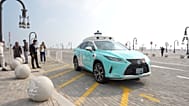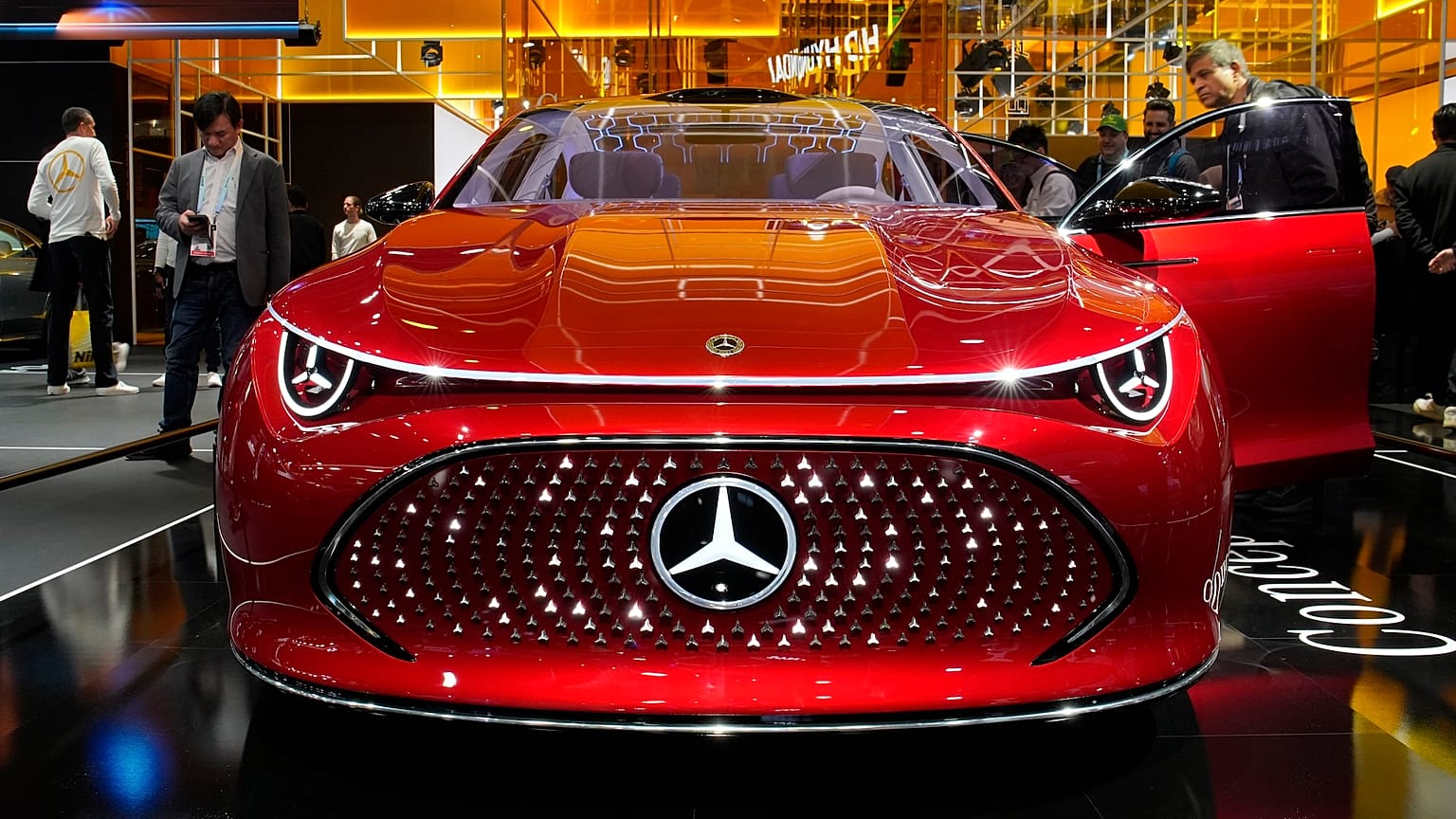As European car makers face mounting challenges in 2025, Goldman Sachs has downgraded both Mercedes-Benz AG and Porsche SE, citing rising costs, tariffs, and margin pressures.
German car making titans, long celebrated for their engineering prowess, are now grappling with the twin challenges of weak electric vehicle profitability and declining earnings in China.
This uncertain landscape has prompted Goldman Sachs to downgrade Porsche SE and Mercedes-Benz AG, painting a sobering picture for the broader European car industry.
In a note published on Tuesday, Goldman Sachs analyst George Galliers highlighted the headwinds facing Europe's car makers, citing rising labour costs, tariff risks, plummeting profitability in China and the mounting pressure to comply with stringent environmental regulations.
"We expect another challenging year for European auto stocks in 2025", Galliers said, noting that the sector had already suffered a more than 12% decline in 2024.
Goldman Sachs has cut its earnings forecasts for the sector by 9% for 2025 and 6% for 2026, reflecting mounting pressures.
Why are German car makers under pressure?
One of the core issues undermining European car makers is the profitability of Battery Electric Vehicles (BEVs).
Goldman Sachs projects that BEV penetration in Europe and the European Free Trade Association (EFTA) will rise from 14.3% of sales in 2024 to around 19% in 2025, driven by regulatory requirements to reduce CO2 emissions.
However, Galliers questioned whether these sales could offset the high production costs of BEVs, which remain a drag on profit margins.
Additionally, German car makers are feeling the sting of plummeting profits from their Chinese joint ventures. Earnings from these ventures fell by 36% year-on-year in 2024, according to Goldman Sachs, reflecting broader challenges faced by Western car makers in the world's largest automobile market.
Galliers added that Ford and General Motors have already seen their Chinese operations become unprofitable, and there are growing concerns that European manufacturers could follow suit.
Porsche and Mercedes: A downgraded outlook
Goldman Sachs downgraded Porsche SE from a "Buy" to a "Sell" rating, citing limited growth prospects for 2025 and ongoing financial risks.
"We see limited scope for earnings growth in 2025", Galliers said, attributing the downgrade to softening BEV demand in Western markets and ongoing challenges in China.
Additionally, the analyst pointed to Porsche's financial challenges, including high leverage and Volkswagen's restructuring efforts, which could limit any near-term improvements in the company's financials. Goldman Sachs does not expect Porsche's net debt to fall below €4bn before 2027.
Mercedes-Benz AG was also downgraded, moving from a "Buy" to a "Neutral" rating. The report cited ongoing uncertainty around the company's top-end luxury vehicle sales, particularly in light of weaker demand in key markets, mixed reception for AMG models, and an ageing S-Class lineup.
Mercedes' adjusted earnings before interest and taxes (EBIT) for its car division was down 44% year-to-date by the end of Q3 2024, with a full-year decline of 40% anticipated. Looking ahead, Goldman expects another 14% drop in 2025 before a modest recovery in 2026.
"Investors are likely to demand a reset of Mercedes' near- and mid-term margin targets", Galliers said, adding that BEV profitability and weakening contributions from China remain key concerns.
Despite these concerns, Goldman Sachs noted potential opportunities for Mercedes-Benz, particularly with advancements in Level 2+ autonomous driving technology and its partnership with Nvidia.
Progress in these areas, coupled with clear shareholder return strategies and plans for the Daimler Truck stake, could provide a more positive outlook for the company’s equity story.
Trade risks and tariff uncertainties
Adding to the industry's woes are unresolved trade and tariff risks.
The European Union recently imposed tariffs on Chinese-made BEVs, while escalating trade tensions with the Donald Trump administration could further disrupt global supply chains.
"The auto industry is inherently global, and many original equipment manufacturers (OEMs) are vulnerable to any escalation in tariffs", Galliers noted.
Is there a silver lining?
Despite the challenging backdrop, Goldman Sachs singled out Renault as a potential outperformer in the European auto sector.
The French car maker's focus on cost discipline and a strong pipeline of new products could help it navigate the turbulent market conditions better than its German counterparts.
The question now is whether Europe's storied car makers can adapt to the rapidly evolving landscape.
As Galliers observed: "Secular concerns have weighed on auto multiples for almost a decade."



















